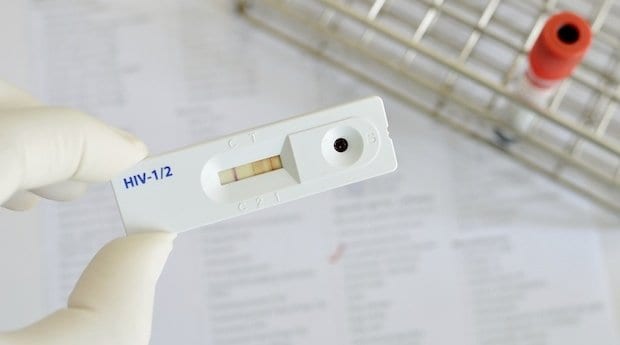The issue of PrEP (pre-exposure prophylaxis) has been a thorny one in the gay community. While some remain adherent to the conventionally accepted wisdom that using condoms for each and every sexual encounter is the best way of preventing HIV transmission (and decry the drug as a gateway to more men having riskier sex), others see it as an important line of defence in the fight against HIV/AIDS and a more practical solution for sexually active men.
The drug, known by the brand name Truvada, can be taken by men who have sex with men to reduce the likelihood of HIV-negative individuals becoming infected. It does not protect against other STIs, and the Truvada website recommends it be used in combination with other safe-sex practices. The drug is already used in combination with other medicines to treat existing HIV infections; it can work to prevent new ones from occurring by blocking an enzyme in the body that the virus needs to multiply.
For Graham (who agreed to speak candidly to Xtra but asked that his anonymity be protected with a pseudonym), the decision to get on PrEP was a practical one; he had begun to realize he was taking more risks with his sexual partners and decided he wanted to be proactive about his sexual health without having to drastically change his behaviour. A gay man in his mid-50s, he first became aware of the drug through an email sent to members of the gay hookup app Manhunt and has now been taking Truvada for about a year.
“The issue is that I was taking more and more risks and unplanned risks,” Graham says. “I just decided that if I wanted to remain HIV-negative and minimize risk that PrEP was the ultimate solution.” He first spoke with the medical team at GayZone, a men’s sexual health clinic run by the AIDS Committee of Ottawa (ACO) and the Centretown Community Health Centre, about what the drug regimen would involve and what side effects he might experience.
“They were very kind and non-judgmental and suggested that, based on the information I provided about my sexual practices, PrEP would appear to be a good solution,” he says. He made an appointment with his family doctor with the information he had collected. What followed were a series of tests, including bone density and liver and kidney function, as well as three consecutive HIV tests over a period of three months. The entire process took about four months; he was given a prescription afterward and began the treatment.
While Graham says he was prescribed the drug by his doctor for its intended use, Truvada, according to Health Canada, is currently approved as a treatment for existing HIV infections and not as a preventative therapy. This means that some doctors will prescribe the drug off-label. The ACO is set to release its formal stance on PrEP. Rob Alexander, ACO’s gay men’s health and wellness coordinator, says the organization plans to recommend that the drug be approved in Canada as PrEP. Graham adds that there is a cost associated with the drug but that it is being covered by his insurance provider.
The daily drug regimen for PrEP users is similar to the birth control pill: each day at around the same time, Graham takes one pill, which contains the drugs emtricitabine and tenofovir disoproxil fumarate. In the first six weeks, he says, he experienced side effects that included headaches, vivid dreams and nausea. “Some [side effects] subsided after a couple of weeks and some after four weeks,” he says, adding that he has friends using the drug who experienced no side effects.
Going on PrEP hasn’t substantially changed his behaviour, as far as his lifestyle and sexual practices are concerned. “I still use condoms occasionally, and I still bareback occasionally,” he says. “My sexual lifestyle hasn’t changed all that much other than I feel a lot more secure.” Graham says he does disclose to partners that he is taking PrEP, and he has noticed it tends to make them feel a lot more secure. “It increases the confidence in the fact that I am HIV-negative.”
He says the biggest thing he’s noticed from partners is that very few of them seem to be aware of PrEP, which he feels may be because of a lack of awareness and education. He points to negative media coverage of the drug, as well as the high level of fear that still exists around HIV. Truvada’s manufacturer, Gilead Sciences, does not currently advertise the drug as a preventative therapy.
When faced with partners who haven’t heard of PrEP, Graham says, he tells them what it is and how he takes it and then encourages them to do their own research. He says that he feels organizations like GayZone and the ACO could do more to promote PrEP and that online dating sites and apps aimed at gay men, including Squirt, could reach a wide audience if they were to promote it.
He’s also noticed that more partners express a willingness to bareback after learning he’s on PrEP. “The thing about PrEP [is that] it doesn’t protect you from other sexually transmitted infections, so there’s still that risk. And so I still need to get tested for other STIs,” he says. “PrEP is a solution for HIV, but it’s not a solution for everything else. You need to have a discussion about that, as well.”
Graham continues to be tested for HIV every three months at GayZone to ensure he is remaining negative. He says that liver, kidney and bone-density tests are conducted on a yearly basis by his doctor. For him, the regimen is worth it. “I would prefer to . . . take a pill a day to remain negative than take a pill a day to remain undetectable,” he says. “If all HIV-negative men took PrEP, imagine what that would do to the rate of infection.”
For the time being, Graham says that he plans to continue taking PrEP as a preventative measure but that he would consider stopping if he were in a long-term monogamous relationship with a partner who was HIV-negative.“If someone is taking risks with their health through barebacking, I’m a firm believer that PrEP needs to be looked at.”
To learn more about Truvada used as PrEP, visit
start.truvada.com


 Why you can trust Xtra
Why you can trust Xtra


